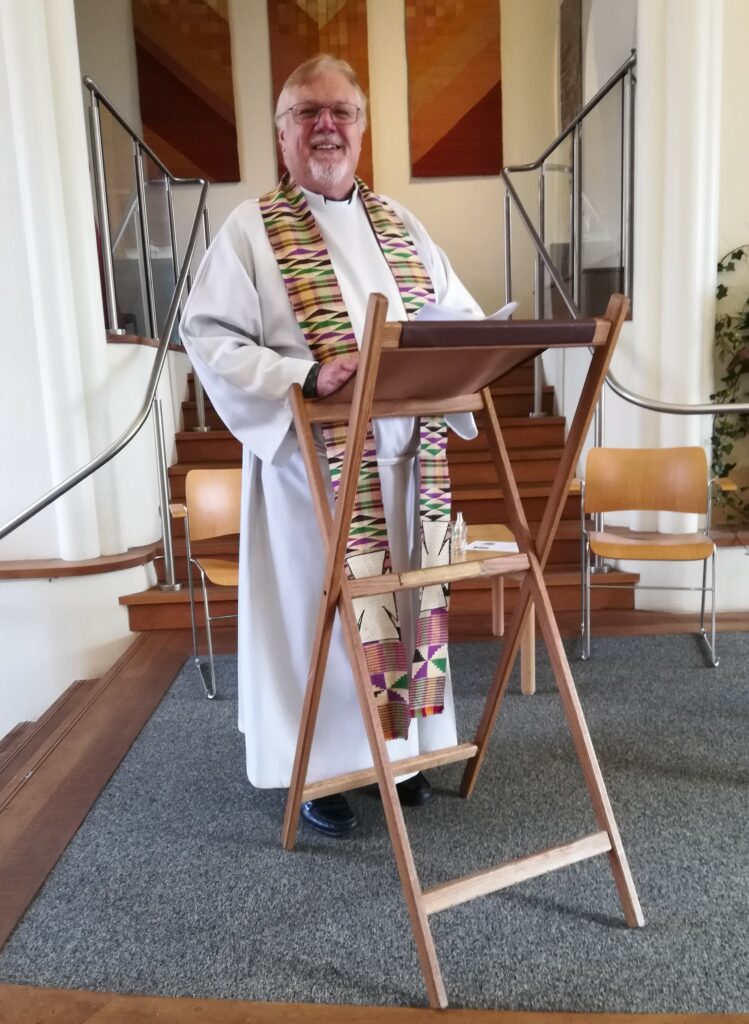Who is Jesus Christ for us today?
I was delighted to be invited to preach last Sunday, February 4th, 2024, by the Rev’d Sheila Swarbrick, the Rector of the Central Parish, and the sermon has now been posted on the sermons section of this website.
The Central Parish now comprises the historic churches of Exeter’s city centre, dedicated to St Stephen, St Olave, St Petrock, St Pancras, and St Mary Arches. The website for the Central Parish contains many interesting photographs and other details. St Stephen’s is located just opposite the Guildhall, the centre of civic life in the town since it was completed in 1470. The church itself was first built in stone even back in Anglo-Saxon days, possibly on the site of a previous wooden church – and the account of its history reflects all the turbulent changes through the Norman Conquest, the mediaeval period, the Reformation, the English Civil War, and subsequent centuries, up to and including being bombed by the Luftwaffe’s in the famous air raids in May 1942.
Today it is a beautiful open space which is used by the congregations of the central team of churches, as well as by other churches for services, as well as for a host of other activities and events from coffee mornings to concerts, exhibitions and meetings, reaching out to the masses of shoppers, workers, visitors and tourists who throng down the ancient High Street.

The readings set for that particular Sunday were two of the most extraordinary reflections on the person of Jesus of Nazareth from the two great theologians of the New Testament – St Paul and St John – in Colossians 1.15-20 and the opening Prologue to John’s Gospel, 1.1-14. These readings proved irresistible to me as a biblical scholar with a particular interest in Jesus and the Gospels – and so he took as his theme the central and crucial question of “Who is Jesus Christ for us today?”
The question was actually posed by Dietrich Bonhoeffer in a letter written on 30th April 1944 to his friend, Eberhard Bethge, but it was central to Bonhoeffer’s thought throughout his life and work, starting with his lectures in Christology, which he delivered to students at the University of Berlin in the summer of 1933, barely months after Hitler had been installed as Chancellor, and began his anti-Jewish policies.
As the world is faced with war and conflict today, and all the problems facing the human race from climate change to the refugee crisis, my sermon concentrated on a detailed exegesis of these two extraordinary passages, written only a few decades after the similar execution of Jesus of Nazareth for what he believed, a faith for which Bonhoeffer died – and we are challenged to live out today!